ReservationSearch and reserve rooms
Click here to confirm, change or cancel your reservation
Shinkansen accommodation plan
提携法人専用予約
2025.06.15
Osu Engeijo: A place that fosters connections with people and nurtures rich hearts, connecting them to the future
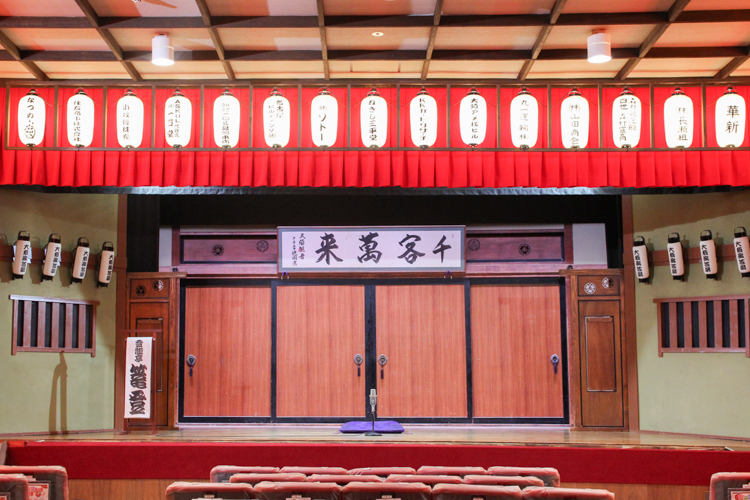
Osu Shopping Street is said to be the most vibrant shopping street in Japan, and is a lively area with approximately 1,200 stores. It is always bustling with people, with a wide variety of stores selling electronics, second-hand clothing, gourmet food, and more.
Located just a few minutes by train from Nagoya Station, this shopping street stretches from Osu Station to Kamimaezu Station on the subway, and offers a wide variety of gourmet food, including classic Nagoya cuisine, B-grade gourmet food that has people lining up, international cuisine, long-established restaurants, set meal restaurants, and coffee shops. It is a popular area for tourists both from Japan and overseas, as a place where you can enjoy eating and shopping.
Osu Shopping Street, with its charming "hodgepodge culture" atmosphere that blends old and new and incorporates various cultures, has cultivated culture as a source of Nagoya culture. In one corner of Osu Shopping Street, Osu Engei Hall, which has continued to carry on culture from the Edo period to the present day, is known as the only vaudeville theater in the Chukyo region. Manager Yazaki Michiya says he wants to pass on the Osu Engei Hall to future generations.
A culture that continues from the Edo period
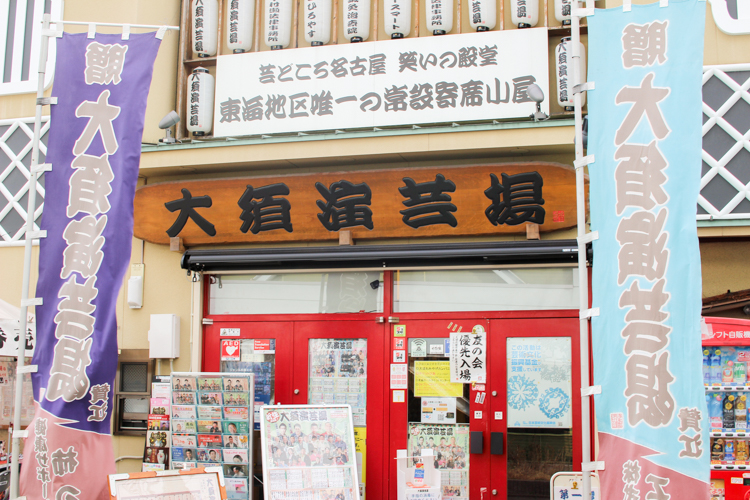
The history of the Osu Engei Hall dates back to the Edo period. In the early 18th century, Tokugawa Yoshimune implemented the Kyoho Reforms to rebuild the Edo Shogunate's finances, and a trend toward frugality spread throughout society. However, Tokugawa Muneharu, the lord of the Owari domain, opposed this and promoted an open-door policy. By encouraging the arts and performing arts, many theaters were built in Osu, and the area became a bustling place known as "Nagoya, the center of the arts."
Osu Engeijo was established in 1965 (Showa 40). As a vaudeville theater where rakugo, manzai, and comedy sketches were performed, many entertainers honed their skills and many famous stars also took to the stage. Although the theater was once bustling every day, with the changing times, it fell into financial difficulties and the building deteriorated, leading to its sad closure in 2014.
Human connections bring Osu Engei Hall back to life
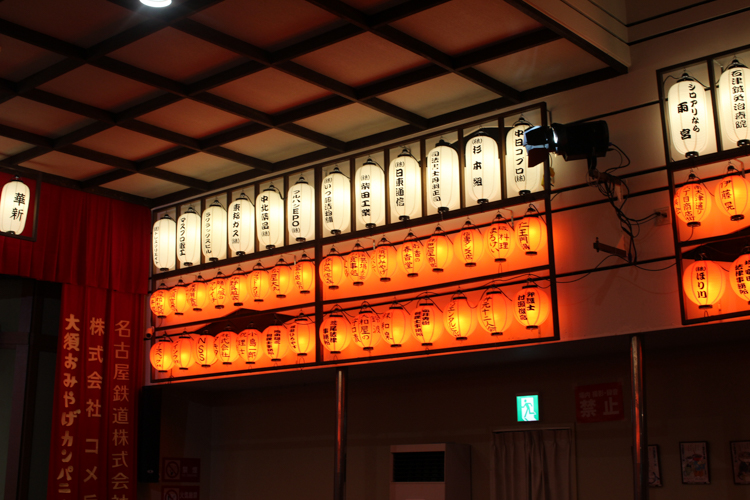
The landlord's desire to revive the Osu Engei Hall reached his junior lawyer, Yazaki, through a fellow lawyer classmate. From there, the person chosen was his younger brother, Yazaki, who is currently the manager. He was approached with the request to "leave the management of the Osu Engei Hall to us."
As a person with a family to support, Yazaki initially thought it would be difficult, but a childhood memory stirred him. He recalled going to his father's company, which was located on the second floor of a Tokyo comedy hall, and becoming familiar with the unique atmosphere there. Further encouraged by his brother's enthusiasm, Yazaki decided to take on the role of manager of Osu Engei Hall.
However, running it as a business was difficult, so they started running it as a volunteer organization as a general incorporated association. While searching for funding, Yazaki's brother reached out to his friends from his time at the Nagoya Junior Chamber of Commerce, and supporters began to appear one after another. Looking back on that time, Yazaki said, "I felt the strength of the connections between people in Nagoya, something I never saw in Tokyo."
Currently, the lanterns hanging at Osu Engeijo Hall list the names of the sponsors who provided support. The revival was also aided by the cooperation of the Osu Shopping District. "The connections with so many people created a miracle," says Yazaki. This year, Osu Engeijo Hall celebrates its 10th anniversary. The power of mutual support keeps its lights burning to this day.
The same stage will never be repeated, so enjoy the laughter that is born in this moment.
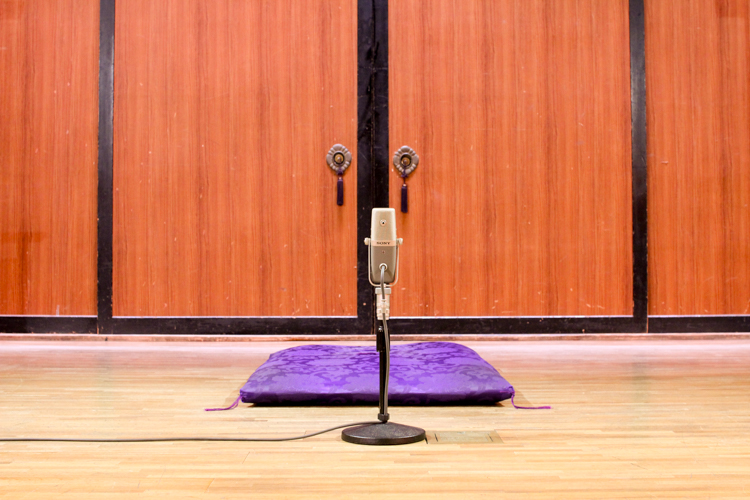
The charm of a yose lies above all in the improvisational arts. The program is decided based on the mood of the audience that day, and each performer skillfully creates a flow leading up to the final "big final act." Because of this, the combination of performers, audience, and art means that no two performances are ever the same. Furthermore, there is no recording or recording of the performance, creating a special, one-off experience that can only be experienced by those who were there.
Furthermore, the dark humor and free-flowing exchanges that can only come from a closed setting have become precious in today's social media society. The younger generation may have fewer opportunities to experience traditional performing arts, but as they get older, they come to appreciate the profound depth of these performances more than flashy entertainment. "Right now is the time I'm having the most fun experiencing yose," says Yazaki.
I want to pass on this place that cultivates spiritual richness to future generations.
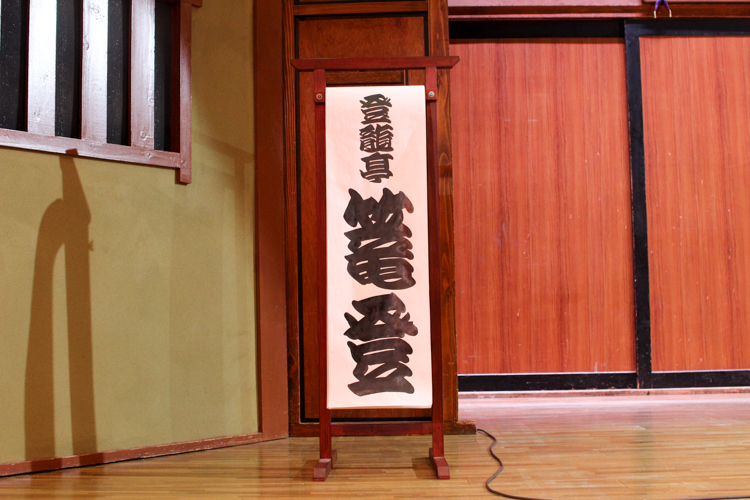
Culture and the arts are said to enrich people's hearts. "It is known (and said) that visiting and experiencing these places even just once can have a positive impact on children's education," says Yazaki. Today, the Osu Engei Hall is also used as part of school education, playing a role in passing on traditional performing arts to the next generation.
Normally, a yose is held every day, but in order to maintain its operations, Osu Engei Hall only holds performances from the 1st to the 7th of each month, and the remaining days are used as a rental venue.
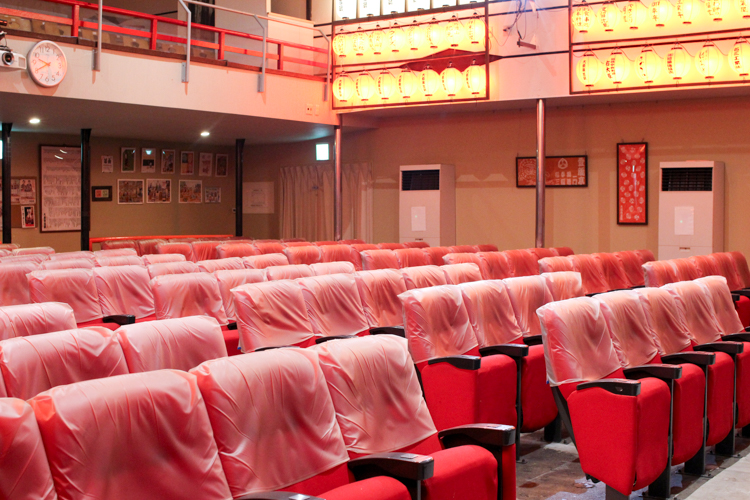
"If we stop running the yose, it will just become a venue. Right now, we only hold it seven days a month, but I hope that one day we can hold it every day," says Yazaki. Osu Engei Hall exists thanks to the support of many people. Here, laughter is born from the live interactions with the audience, and you can feel the depth of the art that has been accumulated over time.
Yazaki hopes, "I hope that there will be more local comedians and that more people will support us."
Osu Engeijo continues to provide a stage for entertainers today, passing on spiritual richness and laughter to the future.
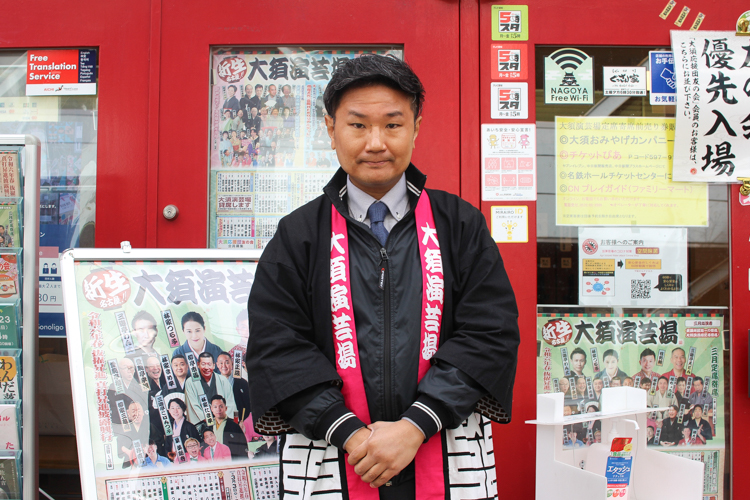
Michiya Yazaki, manager of Osu Engeijo
Osu Engeijo
Address: 2-19-39 Osu, Naka-ku, Nagoya, Aichi Prefecture, 460-0011
*For details on business hours and holidays, please check the link above.




